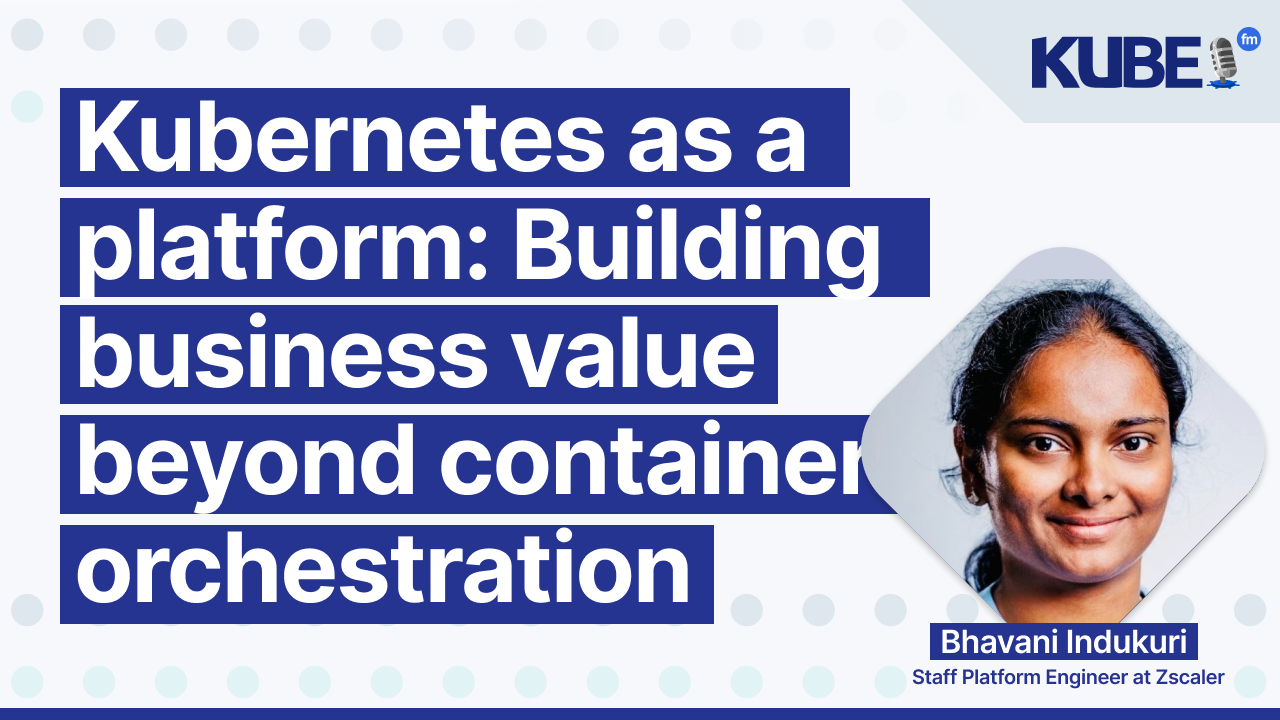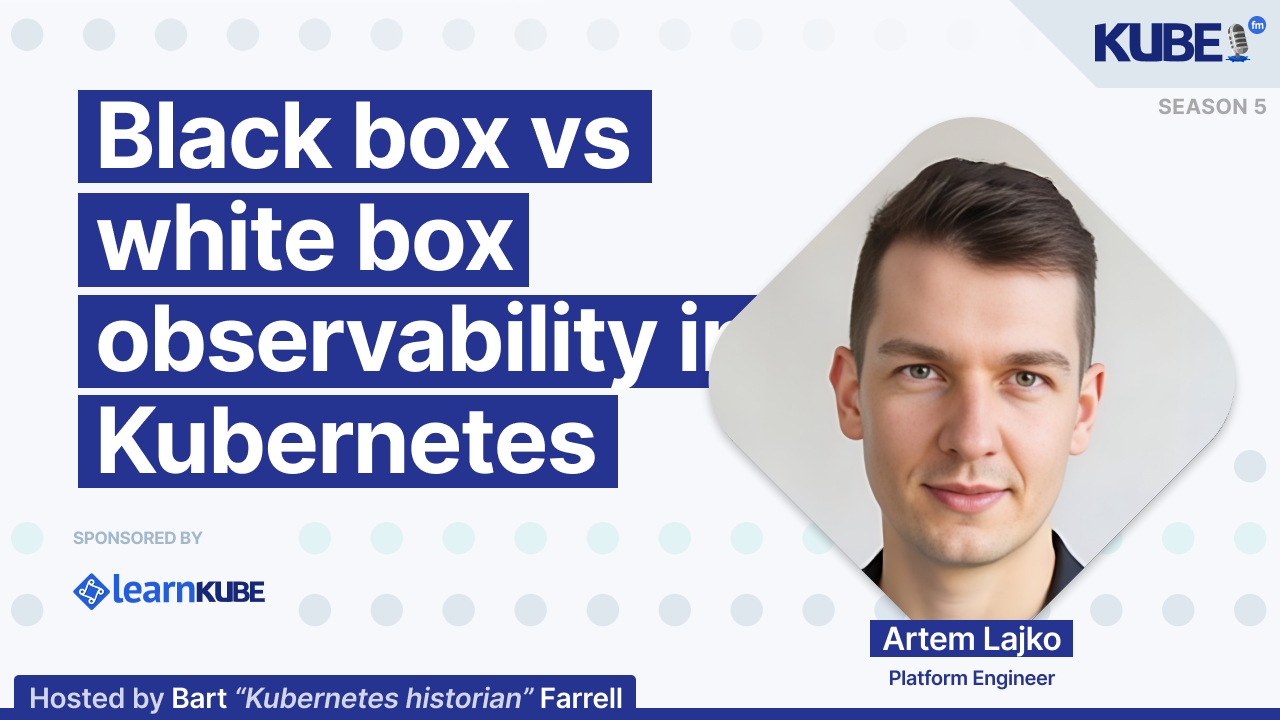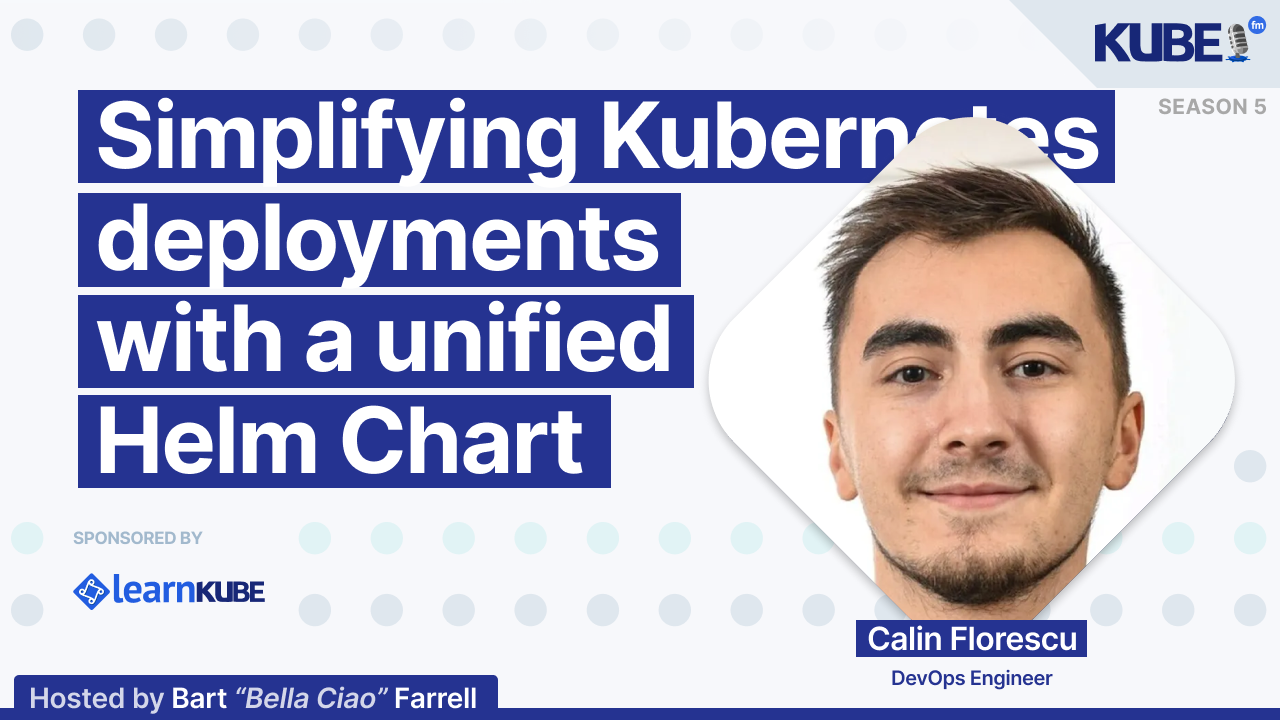Kubernetes as a platform: Building business value beyond container orchestration
Apr 24, 2025
A deep dive into Kubernetes evolution, emerging tools, and the developer experience.
In this interview, Bhavani Indukuri, Staff Platform Engineer at Zscaler and CNCF ambassador, discusses:
Three emerging Kubernetes tools worth watching: Kubernetes operators that extend capabilities to solve complex problems, Kustomize for deploying applications across different environments, and Argo CD
The transformation of Kubernetes from a container orchestration tool to a comprehensive platform where companies are building entire solutions on top of it
The ideal balance of Kubernetes knowledge for developers in the platform engineering era, suggesting developers need minimal Kubernetes understanding for basic operations and debugging, while platform engineers handle the complexity.
Relevant links
Transcription
Bart: I'm Bhavani Indukuri, and I work for Zscaler. My role is focused on cloud native technologies and Kubernetes.
Bhavani: I am Bhavani. I work as a staff DevOps engineer at Zscaler. I'm also a CNCF ambassador and Women in CNCF organizer, helping to promote the CNCF landscape.
Bart: Three Kubernetes emerging tools that Bhavani Indukuri is keeping an eye on:
These tools are part of the evolving CNCF landscape that continues to enhance Kubernetes ecosystem capabilities.
Bhavani: The first key aspect is Kubernetes operators, which extend the capabilities of Kubernetes to help solve complex problems. The second is customization that enables deploying applications in the Kubernetes way across different environments. The third involves tools for solutions on top of Kubernetes, such as Argo CD or observability tools.
Bart: I noticed that the transcript snippet you provided seems to be a paraphrased or hypothetical statement, not a direct quote from the original transcript. Without the full context of the original audio, I cannot confidently apply hyperlinks. Could you provide the complete transcript or confirm the exact wording?
Bhavani: Companies started to learn about Kubernetes as a container orchestration tool, but nowadays they are adopting Kubernetes as a platform. Everything is built on solutions on top of Kubernetes, for example, from app development using Dapr to deploying things and enabling observability with Argo series. The whole CNCF landscape is transforming Kubernetes into a platform, making it a go-to solution for those who want to build a platform.
Bart: Our guest Artem mentioned that successfully setting up observability tools does not necessarily equal the value generated by the company. How do you ensure your observability implementation generates business value?
Bhavani: Setting up an observability platform and getting metrics, logs, and traces is not enough. We need to act in a timely manner, meeting expectations such as SLAs and SLOs. The goal is to improve business reliability and ensure we are providing customers with a dependable product. It's not just about collecting data, but acting upon it effectively.
Bart: Our guest William said that developers shouldn't know about the technology we're running—they shouldn't know about Kubernetes or write YAML. What's your view on how much Kubernetes knowledge developers should have right now? The world is focusing towards building platforms.
Bhavani: Developers should have minimal knowledge of Kubernetes, such as providing a service spec, and then let the platform handle deployment to production. Even though the platform manages most tasks, developers should have enough knowledge to debug issues, like listing Kubernetes resources and checking logs, while platform engineers enable and simplify their work.
Bart: Kubernetes turned 10 years old last year. What should we expect in the next 10 years?
Bhavani: So far, technology has emerged with the latest trends. I am very much interested to see how Kubernetes is adopting AI things in the future because that's going to be the next frontier in IT. I believe Kubernetes will use AI to improve things more than what we have today. Kubernetes is the next place to be.
Bart: I notice that the transcript snippet is very short and lacks context about what might be "next" for Bhavani. Without more context from the full transcript, I cannot confidently add hyperlinks. Could you provide more of the surrounding conversation to help me understand the full context?
Bhavani: I'm trying to learn more about Cloud Native. At the same time, I should start learning AI and the platform engineering side of things. These are my two interesting topics for the future.
Bart: Bhavani Indukuri suggests two primary ways to get in touch with her:
Via her Twitter handle
Through the CNCF Slack community
As she works for Zscaler and is a CNCF ambassador, these platforms are good ways to connect with her professionally.
Bhavani: You can reach out to me over LinkedIn by searching for Bhavani Indukuri. On Twitter, find me at @IndukuriBhavani. I'm also available on CNCF Slack. Please follow Women in Cloud Native. Thank you.



